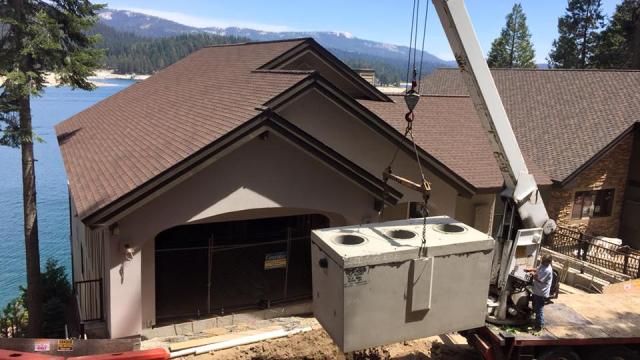
If your lake home is not on a municipal sewer plant, you’re probably familiar with septic tanks. If you’re new to this topic, we’re here to help. Septic systems collect wastewater in domestic residences and are considered a simple OSSF (on-site sewage facility). At a lake home, septic tank upkeep is more crucial due to water contamination risks. To help you remain an informed lake homeowner, we consulted experts to answer frequent questions you may have about septic tanks.
What are the Best Types of Septic Tanks?
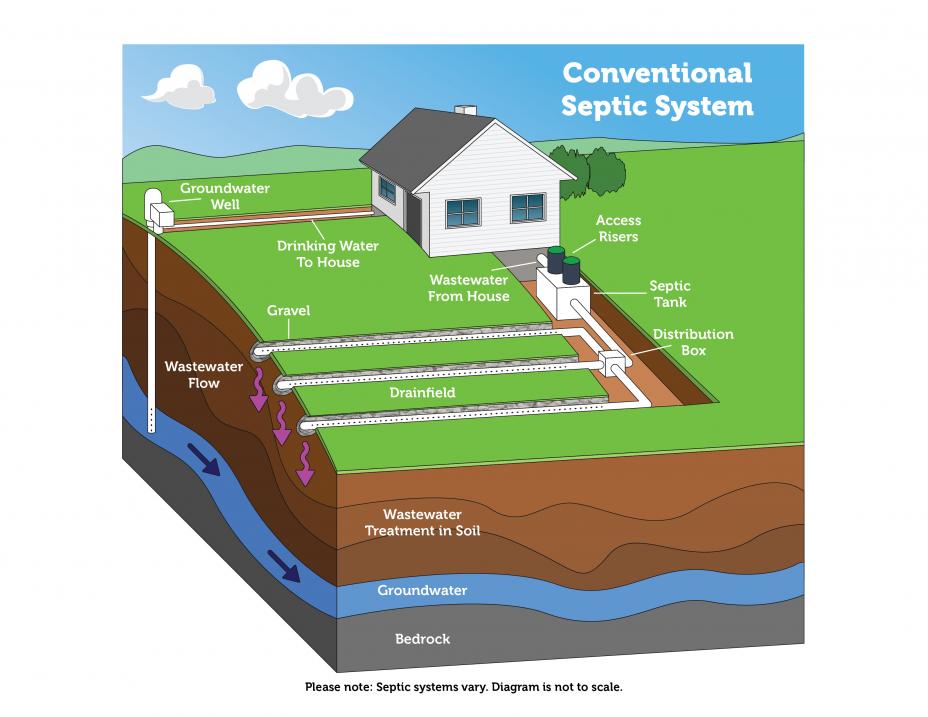
There are two types of septic tanks — concrete and plastic. The concrete tank’s durability makes it the ideal choice. Plastic tanks are the default when the installation company can’t access the site with heavy concrete delivery equipment. “This can be due to trees, fences, power lines, property lines, steep lots, and landscaping,” explains Jeanie Lentz of Lentz Wastewater, whose company covers Lake Norman and the Piedmont region of North Carolina.
Beyond these two categories, nine different systems exist. You can visit the Environmental Protection Agency website for full descriptions of each type of septic tank. According to Justin Edwards, a septic tank installation contractor from Michigan, chamber systems are best for a lake house. “These are popular near rivers and lakes where excess water is common,” he explains.
If your lake house’s septic tank isn’t a concrete chamber system, no need to worry. “Ultimately,” says Jeanie Lentz, “the best type of system is a system that’s installed appropriately by a licensed installer and properly maintained by the homeowner.” As such, proper maintenance is more important than the type of septic tank.
What Types of Clearance are Best?
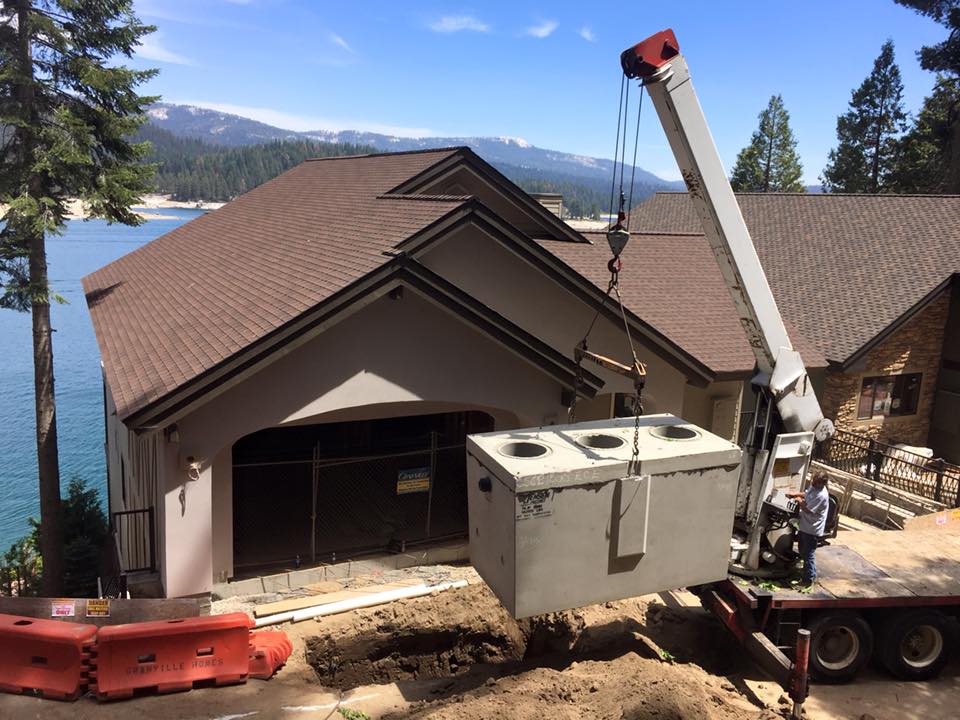
Your required clearance from a body of water depends on the state in which you’re located. However, the average distance that local ordinances mandate is 50 feet from springs, lakes, or water streams and 100 feet from any public water supply. To be safe, Mitch Turner from Septic Masters LLC recommends 100 feet of clearance for lake properties. Be sure to check local regulations in your lake area.
How Often Should You Check the Tank?
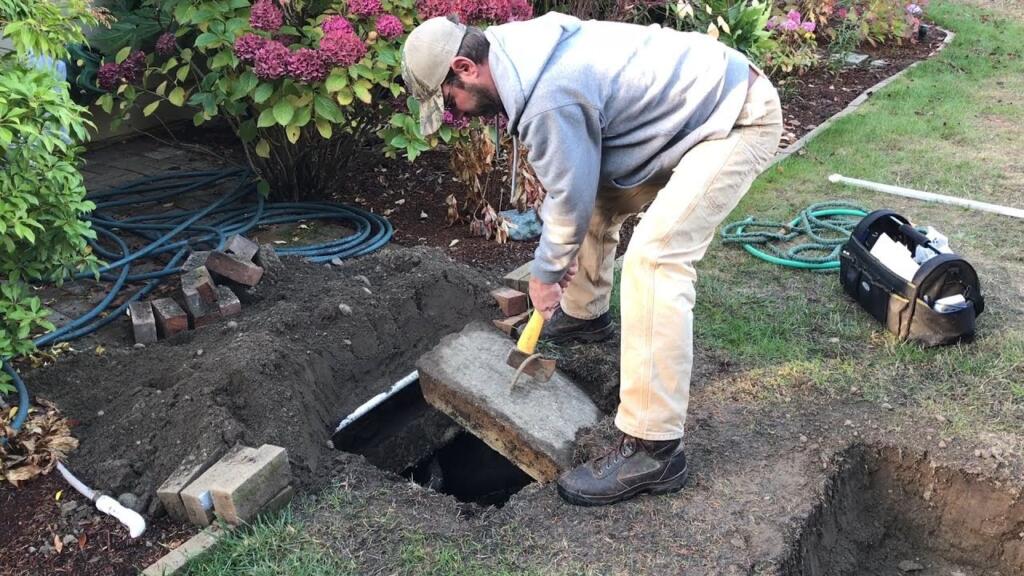
Mitch Turner advises checking your tank every three years. This can change depending on other factors, such as how many people live in the home and how often you use it. For instance, a house with a family of five members would need more regular maintenance than a household of two. Further, if you live permanently on the lake, you’d need to check the septic more often than if your lake house is a vacation home.
Another consideration with your septic system is proximity to the water. If you’re living next to a lot of water overflow, Justin Edwards says it would be beneficial to check and empty the tank annually. “It’s very important to clean septic tanks routinely. Otherwise, all the toxins will build up and kill the bacteria that is responsible for breaking down the waste in the first place,” he says.
You may also notice other clues that tell you it’s time for tank inspection. For instance, if you see wet spots, hear gurgling, or detect a bad odor, hire a professional to check your septic system.
How Much do Septic Tanks Cost?

Depending on the type of system, the cost of septic tanks can vary greatly. On average, it’s safe to assume you’ll be between $400-$800 out of pocket. This spend is not much different from a residential home unless your property requires you to invest in a less conventional septic tank.
However, keep in mind that this cost represents the tank itself, not including the installation process. For more insight, Home Advisor posts the national 2020 average total costs. According to this report, you can expect to pay around $6,216.
Is Septic Tank Maintenance Different at a Lake House?
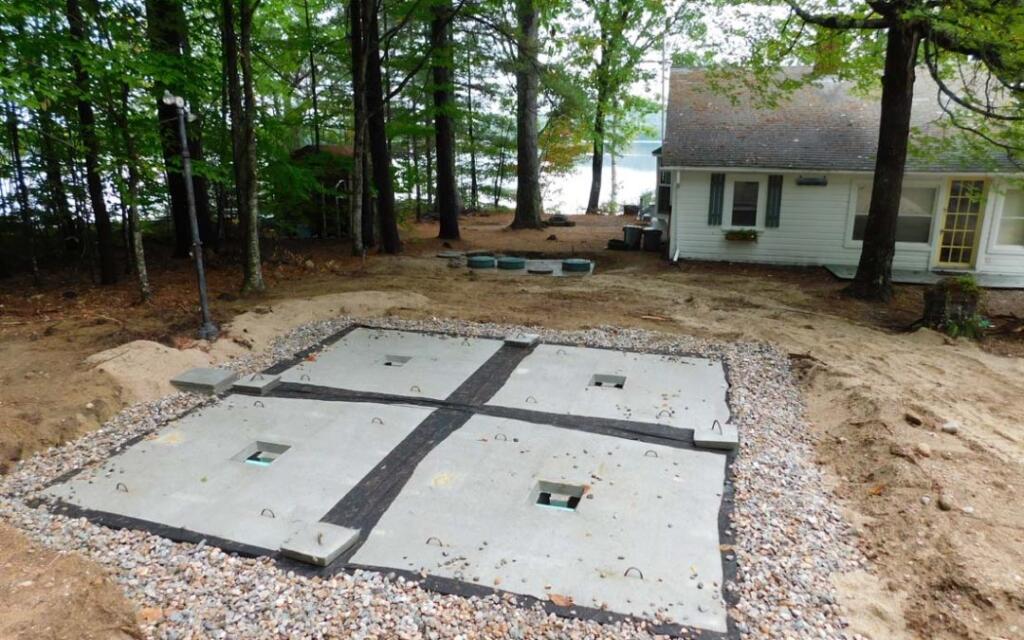
At a lake house, more is at stake. “Maintaining water quality is the primary concern with any water-adjacent sanitary sewage system,” says Jesse Silkoff, founder and co-president of MyRoofing Pal. Lake homeowners have a responsibility to the nearby body of water.
Despite the higher call of duty, there should be no difference in your behavior at a residential home versus a lake home. For instance, in both houses, you would not pour chemicals down the drain, use the garbage disposal, or park near the septic tank. “The biggest difference would be how often you perform maintenance on it since you’ll want to clean and empty lake home septic tanks more regularly,” says Justin Edwards.
Even then, there isn’t a one-size-fits-all approach for septic tank maintenance at a lake home. The type and cost of maintenance depend on the topography, presence of bedrock, the height of the water table, and type of soil. For instance, a North Carolina lake house is likely more rocky and elevated than a Wisconsin home.
There are multiple considerations when deciding on the type of system and its maintenance. Septic systems are often necessary for the lake homeowner due to the often rural locations of many lakes. Consult a local septic tank expert for personalized advice on the topic and remember to consider the septic system when buying, selling, or building your next lake home.

